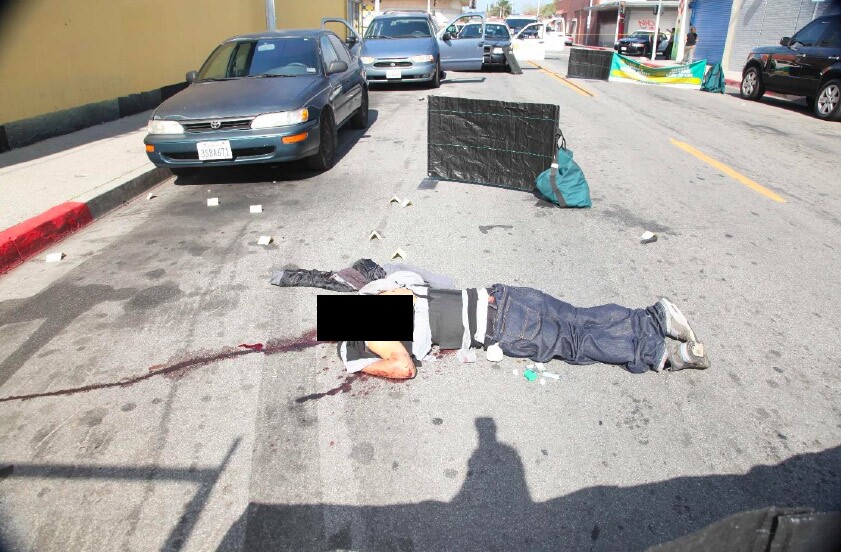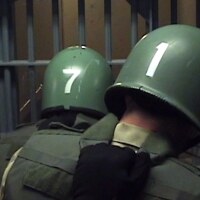Lawsuits Cost Taxpayers More Than $1 Billion Over Past Decade. Will That Go Up Under New Sheriff?
During the past decade, Los Angeles County’s taxpayers have doled out more than $1 billion for other people’s mistakes.
Fire engines crash. Public Works and Animal Control workers collide with other drivers as they move from site to site. Department of Children and Family Services employees make errors and sheriff’s deputies shoot and kill unarmed people. People are convicted of crimes they did not commit. County physicians misdiagnose medical problems.
Each year, taxpayers in the county and the cities that contract with the county for policing and other services pay for mistakes. Some payouts draw little attention but actions by the new sheriff have refocused attention on whether government is doing enough to plug this financial drain.
Since 2009, the county has spent nearly $1.1 billion to settle lawsuits, pay off judgments, and pay lawyer fees – about the same amount spent on the recent San Diego (405) Freeway project through the Sepulveda Pass, according to litigation and settlement reports tallied by SoCal Connected.
Of that amount, about $518 million went to the victims, those injured in the mishaps or family members who sued the Sheriff’s Department in wrongful death and other cases. The rest went to lawyers and for other expenses.
County litigation and settlement costs fluctuate year to year and 2017-2018’s fiscal year total of about $135 million, while down 7% from the previous year, was second only to a high of $145.5 million in 2016-2017. The cost has risen from $94 million 10 years ago.
According to a March 5, 2019 memo, the Sheriff’s Department led all county agencies with $10.2 million in judgments and $13 million in settlements for its top three cases, including a $15 million payment over two years to Frank O’Connell, who spent more than 27 years in prison for a murder he did not commit.
In what strikes some as an inappropriate response, new Sheriff Alex Villanueva rehired a deputy fired in 2016 over allegations of domestic abuse, stalking and harassment, rehired two others fired for misconduct, and plans to revisit the cases of several hundred deputies fired under former Sheriff Jim McDonnell. Those actions raise the question whether litigation and settlement figures could rise if fired deputies return to the job.
"I think it's too early to tell,” said attorney John Burton, who represents people injured by law enforcement officers. “These things move at a very glacial pace, so I think the impact of this new sheriff won't really be felt for at least a year or two.”
McDonnell’s year-end report to close out his four-year tenure as sheriff showed deputy-involved shootings dropped by more than half in five years, from 44 in 2013 to 21 in 2018. Civil claims dropped from 801 in 2013 to 609 in 2018, and lawsuits were down from 298 to 160.
McDonnell credited reforms in discipline, training and in his jails for improvements in the force. Villanueva, after an upset victory over McDonnell in November, quickly replaced McDonnell’s command staff, reinstated Deputy Caren Carl Mandoyan, and announced plans to evaluate other disciplinary cases. Mandoyan, who worked on Villanueva’s campaign, is a member of a secret society of deputies known as the Reapers, the Los Angeles Times reported March 28.
Attorney Antonio Rodriguez, said reinstatement of Mandoyan and potentially others with questionable records poses a risk for legal problems.
“If they are the subject of investigations and misconduct and complaints, specifically shootings or unreasonable force, definitely we will see an increase in cases,” Rodriguez said.
Attorney Louanne Masry said her office has had a recent increase in calls about sexual harassment and excessive force. She believes video has helped plaintiffs in cases against sheriff’s deputies because “they can no longer hide behind the defense that everybody was reaching for their waistband in every shooting.”
Attorney Ron Kaye, who mostly handles jail-related lawsuits involving violence and suicides, said he hasn’t experienced an increase in calls to his office. He credited McDonnell’s reforms in the jails, including the admission of cameras behind bars, for improved conditions.
“Men's Central Jail was like this gulag where deputies could engage in such abusive behavior without any accountability and nobody would see them," Kaye said. "It was the world of the deputy, and deputy gangs were running the show. It was like a sci-fi movie. I don't get the impression that's the case now. Can it return to that? Of course it can.”
Still, he called concerns about changes for the worse under Villanueva conjecture.
“Everything that you hear is that he is not re-implementing the reforms that were input by McDonnell,” Kaye said. “So, if that's the case and just the mere impact of officers or deputies feeling this sense of bravado so that there's not going to be a level of accountability, how could there not be more cases?”
The answer might not be known for years as lawsuits move slowly through the court process following an incident. Nicole Nishida, a spokeswoman for the Sheriff’s Department, said she could not immediately provide an accounting of complaints registered with the department in the last six months.
But it wasn’t just the Sheriff’s Department that cost taxpayers millions in court cases. Settlements included three medical malpractice cases involving the Health Services and Probation departments totaling $9.5 million. In one case, a ward at Sylmar Juvenile Hall received $3.9 million because medical personnel failed to diagnose a head injury following a fight with other wards. In another case, a child with “neurological deficits” sued doctors at County-USC Medical Center for failing to read ultrasound records correctly.
About once a month, the county’s Claims Board meets to discuss cases negotiated by attorneys for settlements. The Claims Board approves or disapproves anything under $100,000. Anything above that amount is forwarded to the Board of Supervisors for approval.
On March 4, the Claims Board’s agenda included 10 cases totaling more than $1.4 million. Cases included a Probation Department employee’s sexual harassment claim, a crash involving a sheriff’s sergeant, and a fatal shooting. On the March 18 agenda were eight cases and nearly $1.3 million in settlements, including three vehicle accidents involving a sheriff’s deputy, a firefighter and a Public Social Services employee. The April 1 meeting involved 10 cases ranging from a $25,000 settlement for a car accident involving a deputy, to $700,000 in an excessive force case brought by a man who tried to flee from deputies, to more than $3.7 million to family of a man killed in a deputy-involved shooting.

Underneath the paperwork are wrenching personal tragedies. During a Feb. 4 meeting, the Claims Board discussed a $775,000 settlement to a couple who alleged caseworkers took their children from them on Sept. 1, 2015 without a warrant or reason. Records show the Department of Children and Family Services failed to consult with county lawyers or properly document an abuse case against the parents. It was unclear whether county workers were disciplined, but “relevant training was made more accessible to the staff.”
In another matter, the panel recommended that the county pay a slain man’s mother and four children $4.6 million for a 2016 shooting. Bill Bowers, 53, a drug dealer and thief known to deputies who patrolled the Castaic area, died shortly after two deputies spotted him riding his bike near a motel and pulled over to talk to him. Following a short pursuit, a deputy confronted Bowers at gunpoint, ordering him to show his hands.
According to the report, Bowers kept walking toward the deputy, cupping his hands as if he was holding something. Fearing Bowers had a gun, the deputy shot him in the chest, killing Bowers. A blood test determined Bowers had amphetamine, methamphetamine and marijuana in his system. No gun was found.
The Sheriff’s Department investigated the deputy-involved shooting and submitted its reports to the Los Angeles County District Attorney’s Office to review whether lethal force was legally justified. As of the Claims Board meeting, no decision had been made.
In a strange case, the Claims Board recommended a Duarte resident and his wife receive $800,000 to settle their lawsuit, agreeing that during a 10-minute period, a sheriff's deputy answering calls at the department’s Temple station mishandled three emergency phone calls in which victims and witnesses were trying to report a crime spree that included a home-invasion robbery, an assault with a gun and an attempted carjacking.
Another Duarte resident reported what he suspected were burglars working his street the afternoon of March 4, 2016. A man knocked at his door, asked for someone by name, and walked away when the resident told him he was at the wrong house. The visitor got into a Range Rover with paper license plates and drove away.
The resident suspected this was a typical ruse used by so-called “knock-knock” burglars, who seek out unoccupied homes to ransack when nobody answers. He suggested that if deputies arrived quickly, they could catch the thieves.
“OK, but catch for what?” the deputy responded. “’Cause he knocked on the door and asked who lived there?”
The caller again explained his suspicions, but the deputy wanted nothing of it.
“That’s not a crime sir,” the deputy said. “I don’t think no one would be breaking into your house, knocking on your door, in a Range Rover.”
Infuriated, the caller told the deputy to “Go to hell.”
“I’m far from hell,” the deputy responded. “You go there.”
The line then disconnected. The deputy failed to write up the call, sent no one, and continued to answer the phone.
Eight minutes later, the same deputy answered a call from a woman a half-mile away in Bradbury who reported that her neighbor “just got jumped” and was bleeding. The deputy sent no help, ending the call after just a few seconds.
A minute later, another woman got the same deputy on the phone. She said a man tried to carjack her. She reported seeing a neighbor bleeding in the street and a woman screaming.
The deputy still did not put out a priority call. Four minutes later, firefighters contacted the station and requested deputies get to the scene. By the time deputies arrived, the suspects escaped in a Range Rover. They were later arrested, charged with home-invasion robbery, assault with a deadly weapon, and attempted carjacking.
The Claims Board report said Temple City station operations staff and supervisors investigated the case and found the deputy’s actions violated department policy. The report said “appropriate administrative action was taken.” In addition, the station was to hold training for all personnel assigned to the desk, and a new written guideline was created for handling calls and was distributed in October.


